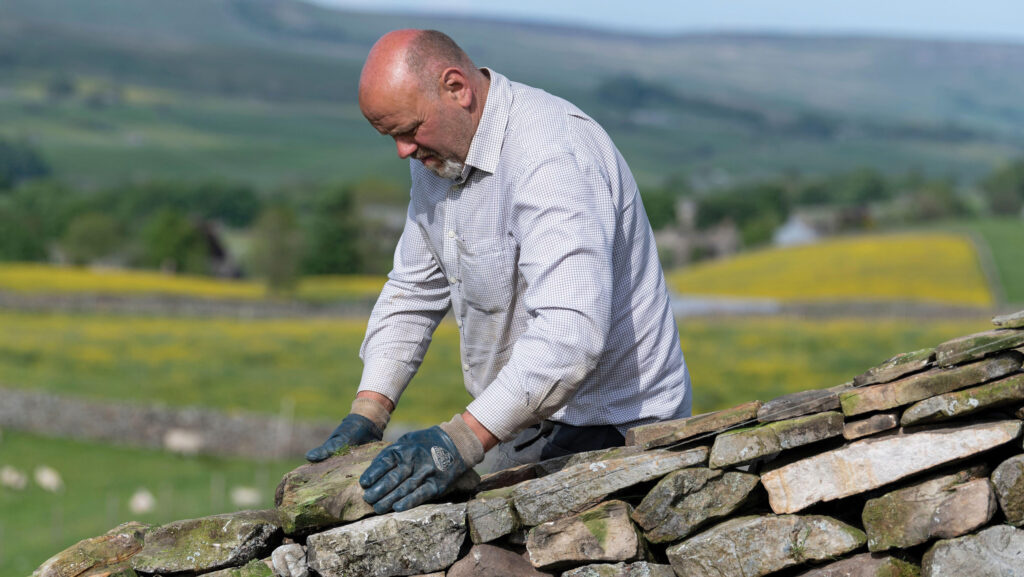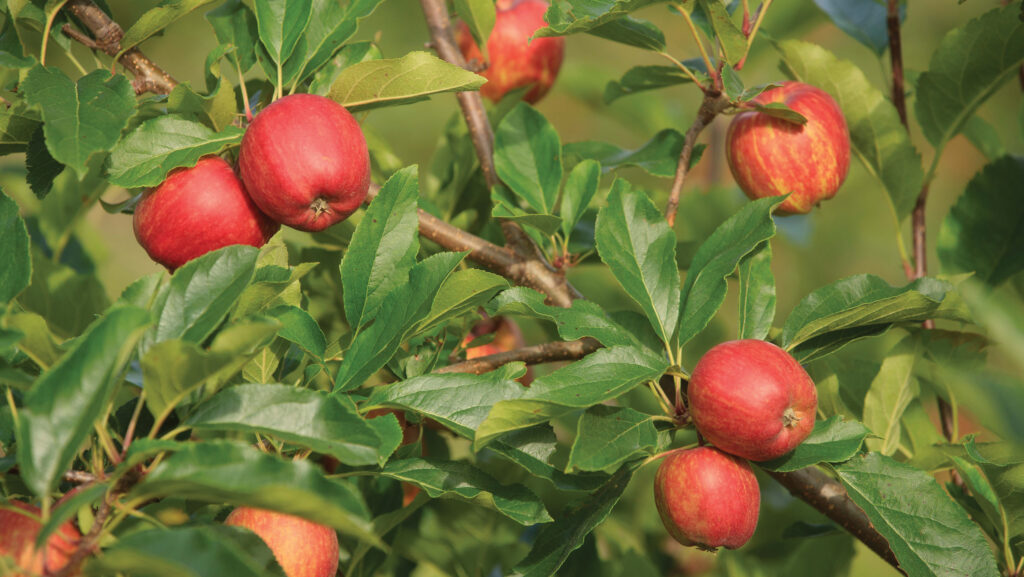New £150m capital grant scheme – act quickly to secure funds
 © Wayne Hutchinson/Alamy Stock Photo
© Wayne Hutchinson/Alamy Stock Photo The sudden removal of capital grants last autumn for farmers in England – without the promised six-weeks’ notice – was just one of a number of shocks farmers have had to get used to.
That surprise scheme closure in November 2024 came hot on the heels of the Autumn Budget inheritance tax shock and the Basic Payment Scheme (BPS) reduction shock, and was a precursor to the shock withdrawal of the Sustainable Farming Incentive in March of this year.
See also: Defra reintroduces £150m of capital grants in England
It was therefore a pleasant surprise at the recent Groundswell event when Defra secretary Steve Reed, without much warning, announced a new round of capital grants – a move intended to appease disgruntled farmers who have been put through the mill of late.
The good news is that another £150m has been allocated to this latest tranche of the scheme (see Applicant’s guide: Capital Grants 2025) as Defra continues to reallocate funds that used to be paid out as BPS money. It has also refined the offer and added some new elements.
Funding groups
According to Defra, the 78 new capital grants are intended to deliver long-term benefits, “helping to reduce pollution and make the environment more resilient”.
The three-year agreements can be used to deliver standalone improvements, or to complement existing Sustainable Farming Incentive, Countryside Stewardship or Higher Level Stewardship agreements.
They are being divvied up among six main funding groups:
- Air quality, for example slurry scrapers, subject to a £25,000/business limit
- Water quality, for example biofilters, subject to a £25,000/business limit
- Natural flood management, for example leaky woody dams, subject to a £25,000/business limit
- Boundaries, trees and orchards, for example repairing stone walls, subject to a £35,000/business limit
- Assessments, for example a wildfire checklist
- Improvements, for example education access visits.
Some of the items included in the air and water quality funding groups will need approval from a Natural England Catchment Sensitive Farming (CSF) adviser, for example automatic slurry scrapers, sprayer washdown areas, concrete yard renewal, and hardcore tracks.
In total, there are 24 items requiring a CSF assessment.
Applications
Farmers can apply at any time during the year, but the Rural Payments Agency (RPA) will accept only one application in a calendar year for each farm business.
Any applications that were already in the pipeline when the 2024 scheme was pulled last November are now being processed by the RPA and are expected to be live by the end of July.
Farm consultant Charlie Davies, from Kelly Farm Consulting near Bristol, says this seems to be proceeding at pace, with CFS advisers already sending out approvals for those items that need them.
New applications should be made online via the RPA website, using the Countryside Stewardship screen.
Farmers will need to register or be registered, and must submit any requested supporting documentation, such as maps.
Farmers need to check in advance if any consents are required for particular capital items, for example planning consent.
While this may not be needed for an application to be submitted, it will be needed before any work commences and when making a claim.

© Tim Scrivener
Payment rates
Generally, payment rates are the same as for last year’s scheme, and full details are available on the government website. Some examples include:
- Low ammonia emission flooring £72/sq m
- Plant an agroforestry fruit tree £17.83/tree
- Earth bank creation £20.59/m
- Planting new hedges £22.97/m
- Medium-sized wildlife box £55.91 per box
- Large leaky woody dam £764.42/dam
- Sheep netting £7.47/m
- Hardcore tracks £44.63/m
- Sprayer washdown area £35.86/sq m
- Slurry store covers £29.50/sq m.
New items
The renewed capital grants scheme includes four new items compared with the previous iteration, namely:
- Woodland assessment £13.63/ha for the first 30ha, then £4.09/ha, to keep woodland in good ecological condition
- Wildfire checklist £327/farm, to help farmers identify wildfire risks
- Dry stone wall repair £16.17/m to rebuild walls in the local style
- Educational visits £363 per visit for up to 25 visits a year
- Wooden field gate £489.90/gate.
Later this year, four more items will be added to the capital grants list:
- Accreditation for educational access visits
- Installing and maintaining signage
- Using tree surgery to hinge a tree into a watercourse
- Creating or restoring ponds.
More information on these items will be available in due course.
‘Act quickly’
Rumours circulating among industry stakeholders last week suggested that the new capital grants scheme might be about to close as available funds were used up.
The RPA was quick to dismiss such speculation, though Defra has subsequently declined to say how many applications are in the system – either rolled over from last year or newly submitted since the scheme reopened on 3 July.
James Bradley, a partner with land agent Carter Jonas, advises farmers to act quickly.
“The sudden closure of the capital grants scheme last November meant many were unable to access the money they needed for a variety of projects,” he says.
“So, while it is welcome that Defra is now accepting applications again, we anticipate that there will be pent-up demand.
“The £150m available in this round could equate to fewer than 6,000 successful applicants if most of the applications are for the maximum amounts of £35,000 or £25,000 per business, and Defra has said that the fund will close as soon as the money has been allocated.”
Defra’s advice is that, at the point of closure, it will not accept any further applications, “including those started, but not yet submitted”.
“We will aim to give reasonable notice before closing the offer, but this may not always be possible,” it adds.
Some in the industry question whether a pre-warning is likely at all, given the past experience with capital grants in November 2024, and with the SFI in March 2025.
NFU deputy president David Exwood says: “Transparency around the spend of this budget will be critical, particularly after farmers and growers were left in the lurch last year when this funding ran out and applications suddenly closed.
“This has to mark the end of the government’s stop-start approach to environmental delivery.”
While the current budget is finite, Defra has indicated that it intends to run another round of capital grants in 2026 and that, in future years, it wants to move to a more competitive-type offer.
Check it all adds up, advises consultant
Henry Clemons, farm consultant in the Stamford office of Strutt & Parker, says that, with farm incomes under pressure, farmers should weigh up the full costs and benefits before embarking on significant capital projects, even with the prospect of grant assistance.
“This scheme is a fantastic opportunity to carry out improvements – for example, covering slurry lagoons, concrete yard renewal, or covering sprayer washdown areas,” he says
“But carefully assess your cashflows and the expected outcomes before applying.”
Mr Clemons notes that it will not be possible to complete some projects within the £25,000-£35,000 cap set for grants in the main item groups, which means additional money will need to be found.
“Remember too, that the grant requires businesses to cover 100% of the project costs up front, with reimbursement coming later.
“So make sure the finances really add up, and that any investment aligns with your long-term business strategy.”
There are other practicalities to consider too – such as the need for approval from a Catchment Sensitive Farming adviser for some capital items that improve air or water quality.
“In readiness for the scheme being reopened, some farmers may have secured this already – but if you have not, then booking an advisory visit or consultation is a priority,” says Mr Clemons.
“And be realistic about whether you will be able to complete the works within three years of the agreement starting, particularly if planning or other consents are required.”
Other capital grants you can apply for
Defra currently has six standalone offers for eligible farmers:
